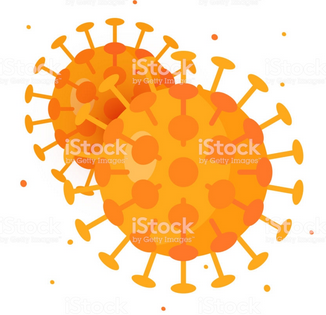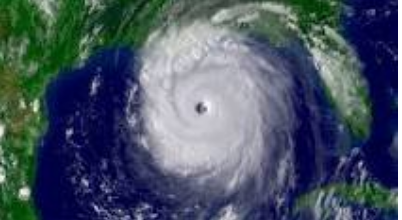

In a country already struggling with political instability, social unrest, drought and economic woes, hurricane season and coronavirus are an unwelcome addition
Coronavirus is changing the world in unprecedented ways. Subscribe here for a daily briefing on how this global crisis is affecting cities, technology, approaches to climate change, and the lives of vulnerable people.
By Anastasia Moloney
BOGOTA, May 15 (Thomson Reuters Foundation) – Haiti has so far reported fewer than 20 deaths due to the new coronavirus but medical student Johane Josema fears that the low toll is what makes COVID-19 so dangerous in the Caribbean nation.
“People need to see many deaths to believe in the pandemic. They say COVID isn’t a problem because there aren’t many,” the 25-year-old told the Thomson Reuters Foundation.
“I’m afraid about the pandemic – but I’m more afraid about the people who don’t believe it exists,” said Josema, who hopes to become a pediatrician.
Jean ‘Bill’ Pape, a doctor who is co-chairing Haiti’s presidential commission created to combat COVID-19, said social attitudes and stigma towards those with the disease hamper efforts to limit its spread.
“Haitians do not believe that this disease is real and are not taking any precautions,” Pape said.
As well, “the population does not want COVID-19 treatment centers near their zone of residence”, he said.
‘PERFECT STORM’
Haiti, the poorest country in the Americas with 11 million people, is facing a “perfect storm” of pressures, with the pandemic arriving as the nation faces a range of other crises, including an approaching hurricane season, Pape said.
Political instability and social unrest have led to violent anti-government street protests, and Haiti is struggling with worsening economic woes and inflation exacerbated by this year’s drought.
“We have a divided country at a time we should all be united against this powerful epidemic,” Pape said.
Poor security and gang violence also are a challenge, he said.
“We have slums controlled by gangs,” said Pape. “How can one penetrate these slums to provide prevention messages and even provide care to sick patients?”

Haiti has developed a “very good” COVID-19 national response plan, including public-awareness-raising campaigns, but it lacks the funds and foreign aid to put it fully into action, Pape said.
The International Monetary Fund and the U.S. government have respectively announced $111 million and $16 million in funding to help Haiti tackle the outbreak and its financial fallout.
Doctors warn Haiti’s already fragile healthcare system would be unable to cope with a major coronavirus outbreak in a country with just 100 ventilators and few hospital beds.
According to a model developed by researchers at Weill Cornell Medicine College in New York and the University of Oxford, predicted COVID-19 deaths in Haiti would range from 5,700 in the best-case scenario to 17,000 in the worst, Pape said.
“If the model is right, the peak infections will occur in June,” said Pape, a professor at Weill Cornell. “Many people may die if we cannot provide adequate care on time.”
Charities warn that a lack of testing coupled with social attitudes in Haiti make it difficult to stem the spread of COVID-19.
“The main problem we have is that people who have symptoms are scared to go to a health facility because they are worried about being stigmatized or attacked,” said Sandra Lamarque, head of mission in Haiti for Doctors without Borders (MSF).
LOOMING HURRICANES
The predicted coronavirus peak in June also coincides with the start of the annual hurricane season that runs until November.
Previous hurricanes have decimated parts of Haiti, including Hurricane Matthew in 2016 that destroyed much of the country’s south.
Forecasters at Colorado State University expect a busier than normal 2020 Atlantic hurricane season, with four out of the 16 predicted storms set to become major hurricanes, partly due to warming Atlantic sea surface temperatures linked to climate change.
“What is predicted is a very active hurricane season. We are worried,” Lamarque said.
Across the Caribbean as governments focus on dealing with COVID-19 and strengthening their health systems, hurricane contingency planning is being disrupted, said the Caribbean Disaster Emergency Management Agency (CDEMA).
In Haiti, emergency shelters are set up in preparation for hurricane season and shelter protocols will be updated to allow for social distancing, according to the World Bank.
But charities warn of COVID-19 spreading in overcrowded situations if people seek shelter during a hurricane.
“Some people won’t be able to stay in their house, they will go with other family. And when you have 10 to 15 people in one house, the risk of contamination is higher,” said Jameson Solomon, the Haiti country director for U.S.-based faith charity Living Water International.

RETURNING MIGRANTS
Even before the hurricane season starts, doctors warn COVID-19 will likely spread across Haiti.
Haitian migrants working in the neighbouring Dominican Republic, often as cleaners, construction workers and sugarcane cutters, are returning home after losing their jobs due to the coronavirus lockdown and economic downturn.
So far at least 17,000 Haitians have returned home. In the coming weeks, a total of 55,000 migrants are expected to cross the porous border, according to the Pan American Health Organization (PAHO).
“They will bring the infection all over the country,” Pape said. “Our greatest danger will come from the Dominican Republic”, which has so far recorded more than 11,000 infections, compared to about 200 in Haiti.
With little or no control at many border crossings, people entering Haiti are not being screened or receiving information about COVID-19.
“They are not getting tested,” said Lamarque.
PREVENTION
Since Haiti recorded its first confirmed coronavirus case in late March, the government has banned all gatherings of more than 10 people, declared a curfew, and closed schools, airports and some factories.
But with two thirds of Haitians living in poverty, most cannot afford to follow the guidelines and self isolate.
Haiti’s food markets, streets and buses remain busy as people continue to go about their daily lives.
“It won’t be realistic to try and implement stricter measures here because people need to work and get an income on a daily basis,” said Lamarque.

To try to ward off the spread of the virus, charities are drawing on a decade’s experience battling another infectious disease – cholera. The virus has killed nearly 10,000 Haitians since 2010.
In the market streets of Haiti’s Northwest and Artibonite departments, trucks with loudspeakers promote messages from the health ministry: “Wash your hands. Wear your masks. Stay home.”
“We’re adapting the cholera messages. The measures against cholera are similar for COVID-19. We’re focusing on hand washing, as well as social distancing,” said Cedric Piriou, Haiti country director for charity Action Against Hunger.
But in a country where most people have little or no access to clean water or sanitation, frequent handwashing is not an option for many Haitians, PAHO noted.
HUNGER CRISIS
Amid fears COVID-19 will spread across Haiti in the coming weeks, charities and PAHO say hunger could prove even deadlier than the virus.
In early May, Carissa Etienne, the head of PAHO, warned of the “real risk that growing food insecurity will result in famine”.
Even before the coronavirus hit, months of social unrest and drought had resulted in more Haitians going hungry.
The global pandemic has also slashed remittances – money sent home by Haitians living and working abroad – by about 30%, according to Pape, making it harder for families to afford food.
One in three Haitians currently need urgent food aid, according to the U.N.’s World Food Program.
“The biggest concern is the crisis of hunger. The most immediate problem is children dying from malnutrition. The COVID-19 crisis is for tomorrow,” Piriou said.
Read more:
Coronavirus pandemic threatens to suffocate U.S. hurricane response
Weakened by war and floods, Yemen fights twin health threats
Coronavirus and climate change
(Reporting by Anastasia Moloney; Editing by Laurie Goering. Please credit the Thomson Reuters Foundation, the charitable arm of Thomson Reuters, that covers the lives of people around the world who struggle to live freely or fairly. Visit http://news.trust.org)
Our Standards: The Thomson Reuters Trust Principles.